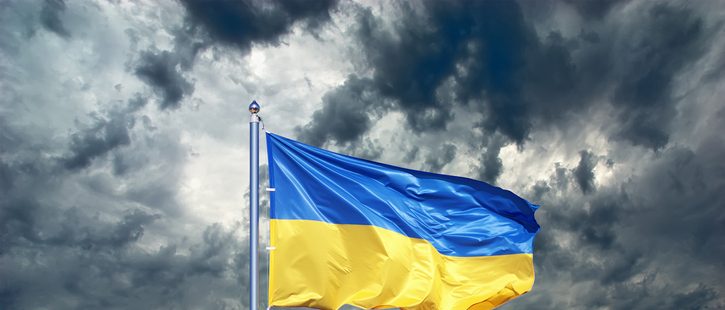Our Opinion: 2022
Markets respond to Ukraine’s invasion

The tragic human cost of the invasion of Ukraine by Russian forces has lead to widespread international condemnation. The market reacted positively on Friday to the smaller than expected sanctions agreed by NATO and other allies against Russia on Thursday. However, that unravelled after the events of the past couple of days. There has been a sharp increase, both in sanctions but also Russian rhetoric, with Russian strategic nuclear forces now on high alert and Belarus opening the door to Russian nuclear weapons being deployed on the border with Poland
The oil price is back over $100 a barrel, stock markets around the world have fallen, and the Russian rouble has tanked. A fortnight ago, one pound would have bought you just under 104 roubles. As of this morning, it’ll get you 140. Not that you’d want to buy any, because chances are you’ll struggle to spend them on anything.
That’s because the US, UK, EU etc have done quite a bit over the weekend to unplug Russia from the global financial system. They have placed sanctions on the Russian central bank and are also excluding some (though not all) Russian banks from the Swift international payments system. This will make it hard for the central bank to defend its currency, and it’ll also make it very difficult for Russia to do business with any mainstream entity.
About the one area where there’s still some leeway is the energy sector. But how many banks are going to want to enable Russian business now that it’s a pariah (because they won’t want to risk breaking present or future sanctions)?
There have also been some other big moves. Germany has changed its foreign policy radically over the weekend. The country now plans to meet the Nato goal of spending 2% of GDP on defence from about 1.5% now, something the US has long been nagging Europe generally to do. (US spending is at over 3.5% while the UK has consistently surpassed the 2% target. Latest data for 2020-2021 suggests France is now meeting it too, along with Greece, Croatia, Estonia, Latvia, Poland, Lithuania and Romania.)
European airspace is also being closed to Russian aircraft – that’s more bad news for airlines, though in the context of Covid, it’s probably relatively minor.
The Rouble, most obviously, has collapsed. The Russian central bank has raised interest rates from 9.5% to 20%. It has become a great deal harder to put a price on Russian assets.
In terms of fleeing from Russian assets, probably the most notable reaction from a UK-based, Russia-exposed company has been that of BP, which decided to get rid of its near-20% stake in Rosneft, the Russian state-owned oil company. Some estimate that this could cost BP up to $25bn to exit. Small wonder the BP share price has taken quite a knock, despite the surging price of oil.
The big risk with Russian assets is that they’d become unsellable due to sanctions or capital controls. That’s where we are now. In the longer run, does it accelerate a possible move away from the US dollar as global reserve currency?
China and Russia specifically have wanted to create an alternative system to US Dollar hegemony for a long time. But it’s hard to set up a workable alternative to the current global financial operating system if everyone signing up for it is a pariah state. It’s not great marketing.
Whilst the crisis develops, it is important to be calm and not panicked into selling, or into buying. Making investment decisions at times like these is particularly fraught. If you intend to do it anyway, stick to your process. But be careful. There is a lot of scope for nasty surprises right now, even more so than usual.
1st March 2022
